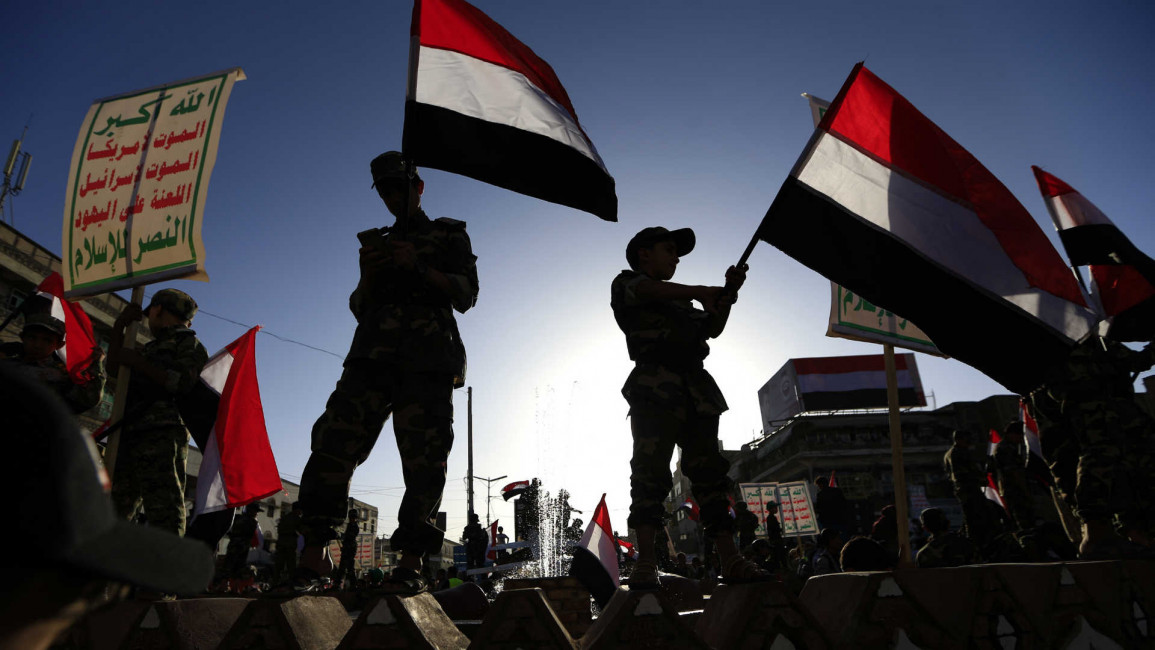Yemen's Houthis advance as loyalists beat 'tactical' Nihm retreat
Renewed fighting, which entered its ninth day on Saturday, allowed the rebels to retake loyalist positions, loyalist commanders told AFP.
"Some of these positions had been under government control for three years", one of the commanders said, on condition of anonymity.
Defence Minister General Mohammed Ali al-Maqdishi implicitly recognised the rebels' advance in the Nihm area - where the government have launched a mass offensive recently - in comments published by the official Saba news agency.
Maqdishi spoke of a "tactical withdrawal from some positions", during a meeting on Friday with loyalist commanders.
The loyalist forces would be redeployed to open a new front against the rebels, Maqdishi said, claiming that "the battle to liberate Sanaa has become inevitable".
The rebel advance came despite extensive air support for government forces from its allies in a Saudi-led coalition, amid a mass offensive against the rebels in the nearest city to the capital.
Coalition planes "attacked Houthi positions more than 30 times in the last three days to reduce the pressure on the loyalists", one commander said.
Read more: Yemen in Focus: Nationwide violence shakes period of peace
On Monday, the government had said it had successfully captured control of a strategic mountain, forcing rebels to flee the area.
The following day, senior Houthi commander, Jaber Al Muwaed was killed in battle in the Nihm area, the closest city to the rebel-controlled capital.
"Our hearts and minds are with the brave heroes on the Nihm front, who are now writing a page that must remain immortal in the Yemeni battle to restore their state and republic," Saleh wrote on Twitter.
Brigadier General Tariq Saleh, son of former late president Ali Abdullah Saleh, called on all Yemenis to unite in support of the anti-Houthi government offensive.
"We are ready to support the national battle with all we can and have," he added.
Twitter Post
|
The offensive came as the government accused the rebels of killing 116 people in a January 18 missile attack on a loyalist military camp in Marib province, east of Nihm.
The death toll ranked among the highest from a single rebel assault since the start of the war, sparking widespread condemnation. US and UN officials warned the military escalation could undermine peace efforts.
"The hard-earned progress that Yemen has made on de-escalation is very fragile. Such actions can derail this progress," the United Nations envoy for Yemen, Martin Griffiths said, urging Yemen's conflicting factions to redirect efforts from the battlefield to political dialogue.
EU foreign policy spokesman Peter Stano said in a statement late on Sunday that "all parties should show restraint and engage constructively with the UN Special Envoy to end the conflict".
"The EU will continue supporting the UN in achieving this with all the tools at its disposal," he added.
The Houthis neither claimed or denied they were behind that attack, which came a day after fighting between the two sides resumed, breaking months of relative calm.
In a report published on Friday, the International Crisis Group said the "Houthis appeared to be making the biggest gains on the battlefield".
The think-tank warned that if the renewed fighting spread, it would represent "a devastating blow to current efforts to end the war".
Yemen’s deadly conflict began with the 2014 takeover of the capital by Houthi rebels who went on to control much of the country’s north. In response, a Saudi-led coalition allied with the internationally-recognised government intervened to push back the rebels in March 2015.
However, the relentless campaign has seen Saudi-led airstrikes hit schools, hospitals and wedding parties, killing thousands of Yemeni civilians. Meanwhile, the Houthis have used drones and missiles to attack the neighbouring Saudi kingdom.
The war has killed over 100,000 people and created what the UN has branded as the world’s worst humanitarian crisis, leaving millions suffering from food and medical shortages.



